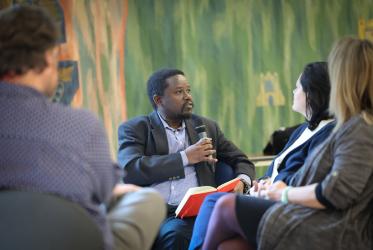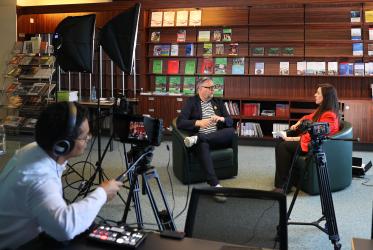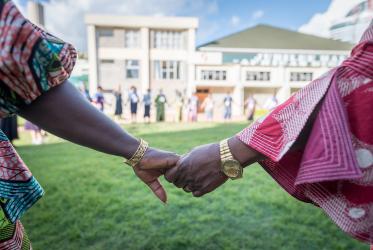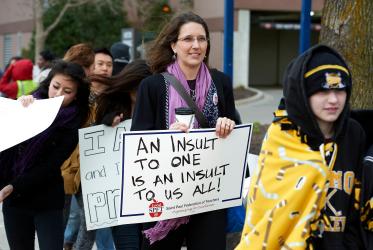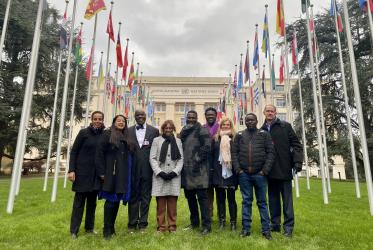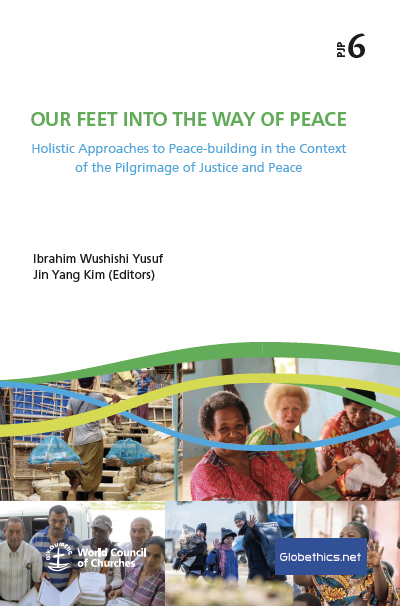Displaying 1 - 20 of 69
11 December 2023
Young Black Europeans: “common witness has an open ear”
30 November 2023
At peace conference, WCC focuses on overcoming racism
26 October 2023
Celebratory event discusses Black leaders’ contributions to WCC
06 September 2023
WCC helps churches connect with UN on racial justice issues
09 November 2022
Migrants in Argentina find listening ears and open hearts
04 November 2022
Seek Peace and Pursue It: PJP Series 4
Reflections on the Pilgrimage of Justice and Peace in Europe
22 August 2022
Our Feet into the Way of Peace: PJP Series 6
Holistic Approaches to Peace-building in the Context of the Pilgrimage of Justice and Peace
19 August 2022
Hate Speech and Whiteness: PJP Series 5
Theological Reflections on the Journey Toward Racial Justice
19 August 2022
Towards an Ecumenical Theology of Companionship: PJP Series 3
A Study Document for the Ecumenical Pilgrimage of Justice and Peace
19 August 2022


